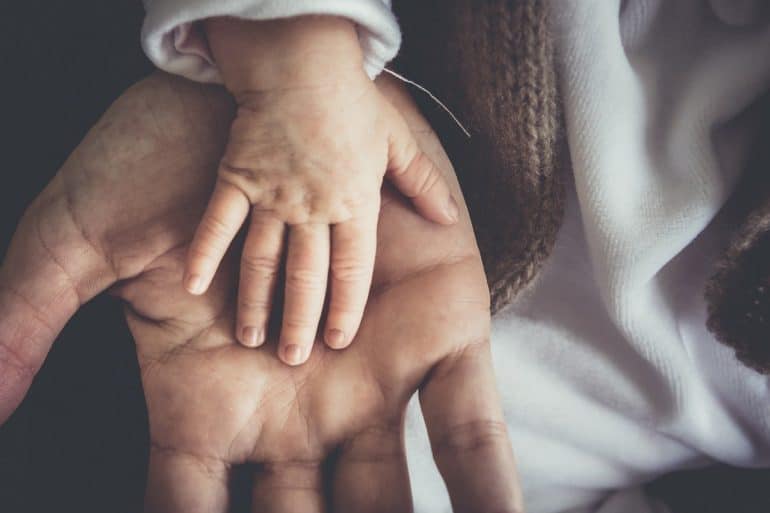A reader wrote a question to the Foma Orthodox journal:
A friend of mine had a very wild youth. He did bad things, was unfair to people, he could betray and forget them. Now, 15 years later, he wants to correct his life, but the fear of the past, it seems, does not give him faith in the future. He goes to church, prays and deeply asks all the saints for help, but I feel that he, one might say, gnaws at himself for his past. It troubles him, anyone can see it. He is 42 years old, has children, his wife left him, but then came back… He can be rude, this is due to the fact that he has no strong faith in the future. I can see it that he wants to live, like all normal people, in a family, but here is the main question that haunts him: what to do with the past, how to start living?
Alexander Tkachenko, an Orthodox psychologist, replies:

Alexander Tkachenko
Discussing the nature of time, Blessed Augustine said that the past no longer exists, and the future does not exist yet. The truth of this brilliant aphorism hardly needs proof. And when the past continues to gnaw at us, it means that it exists only in our memory. In other words, our memory continues to reproduce the events of the past over and over again, preventing us from living normally today and making plans for a normal, happy life for the future. And since we are dealing with memory, it means that this problem can be solved only at this level.
Thesis One: We cannot change the past. But everyone can change their attitude to their own memories.
For believers, the most direct and obvious way here is the spiritual one, through the Sacrament of Confession. But psychological methods can also be useful in this case.
Changing your attitude towards your memories does not mean forgetting about the sin you once committed. On the contrary, the Sacrament of Confession presupposes that a person has the maximum level of awareness of the evil that he has done.
A repentant person is one who finds the courage to look into his past, see what he did there, and say to himself: yes, I really did it. I was capable of this. But I don’t want to live like this anymore. I really want to change and never repeat anything like this in my life. Lord, help me in this!
This is very serious inner work, and only those who have truly decided to put an end to their sinful past and cut off the ropes that reach out to them from the darkness of the evil once committed can have the determination to do it. There can be a lot of pain from memories, a lot of shame and fear from meeting one’s sinful past. And also one may have a very strong desire not to live all these unpleasant feelings, but to quickly flip through them, like boring pages in a book, without reading. A person can just come to a church for confession, wait for his turn, say the sin he has committed in front of the priest, bow his head under the epitrachelion, and listen to the prayer of absolution. And then consider himself free from the consequences of the sin that he has committed. But if a person comes to confession with such an attitude, he strongly risks remaining with his painful memories.

Yes, if his repentance is sincere, God will forgive him for his confessed sin. And the people to whom he had done wrong may have forgiven him a long time ago. But his own memory will continue to tear him into two parts, one of which always returns to the place where the sin was committed, and the other does not want to return there because of fear and shame.
There is a poem in Russian literature that very accurately describes such a splitting effect of sin on human nature. This is a poem by Zinaida Gippius, which is called “Sin”:
Both we will forgive and God will forgive.
We crave revenge out of ignorance.
But evil deed keeps retribution
In itself, in secret.
Both our path is clear and our duty’s simple:
No need to take revenge. It’s not for us.
The snake itself, folding the links,
Will dig its fangs into its own tale.
Both we will forgive and God will forgive.
But the sin does not know of forgiveness,
It keeps itself for itself,
It washes blood away with its own blood,
It never forgives itself –
Although both we will forgive and God will forgive…
Although, here we are speaking on behalf of a person who has suffered from someone else’s sin. However, the essence of the effect of sinful memories on the soul of a sinner is described here with amazing accuracy. Sin, living in the memory of a person, constantly reminds of itself, and at the same time, it does not want to forgive itself.
It would seem that there is some contradiction here: after all, a person wants to avoid these painful memories. Why is he always trying to return to them? Unfortunately, this is the property of unconscious processes in our psyche. Trying to mentally complete some traumatic event from the past, we unconsciously return to it in our memory. But immediately we interrupt ourselves, fearing to face the pain that, as it seems to us, we cannot bear. And in this way we constantly reproduce in our thoughts that very sinful action, the memory of which torments us. As the famous aphorism says, a terrible end is better than an endless horror.
Thesis Two: The fear of meeting one’s past dooms a person to live this fear endlessly in the form of interrupted attempts to meet with it.
The Holy Fathers of the Church spoke of repentant crying. This crying is evidence of a meeting with one’s repressed feelings: shame, pain for what one had done and fear of impending punishment. Sometimes this meeting happens right during a confession. Sometimes during a spiritual conversation with a priest. Sometimes in a psychologist’s office or simply in a conversation with a loved one. But without it, getting rid of the painful memories of sin is unlikely to work.
Sometimes a person cannot part with a sinful past just because he cannot come to terms with the fact that he was capable of doing such a thing. He kind of pushes the incident away from himself, saying to himself “no, it was not me who did it.” But it was… One part of his personality, as if, screams in horror: “This did not happen, it just could not have!” Another part objects: “No, it did, all of it, and you know that perfectly well.” And this inner conflict will not allow a person to live in peace until he finally decides to mentally look at what he once did and live all the related feelings that he so diligently pushed out of his heart for many years.
Often such feelings are accompanied by tears, although this is an optional condition for repentance. The heart can also cry. But without living through this spiritual pain, there is no real repentance for the deed.
St. John Chrysostom figuratively compares the cry of the soul for sins with streams of water that take away pain for these sins from our memory: “Insignificant streams from the rain carry away light stalks, deep rivers and small ones, stormy mountain streams are able to carry away driftwood and heavy stones. Weigh your sins: if your sin is insignificant, even a few tears are enough, if the sin is great, then there should be more tears.”
Thesis Three: Another crucial point in parting with the memories of your sins is taking responsibility for what you have done.
The most obvious way to do this is to make amends. For example, if I violated traffic rules, crashed someone else’s car and my conscience torments me, then I will not rely on insurance to cover the damage to the owner of the broken car. Instead, I will ask him for forgiveness, admit my guilt and offer to drive with him to the auto repair shop, where the mechanics will evaluate the amount of repair work needed. After that, I will give the necessary amount of money to the victim of my mistake, to which I will add also compensation for moral damage, trouble for repair work and the forced downtime of the car for repairs.

The same can be said about the attitude towards all people who have ever suffered material damage from our actions. This is exactly what the repentant chief of the tax collectors Zacchaeus did in the Gospel. Realizing his sins, he did not torment his heart with conflicting feelings. Instead, Zacchaeus immediately publicly announced that he would take responsibility for his crimes and was ready to compensate those who suffered from his actions for all their losses: “And Jesus entered and passed through Jericho. And, behold, there was a man named Zacchaeus, which was the chief among the publicans, and he was rich. And he sought to see Jesus who he was; and could not for the press, because he was little of stature. And he ran before, and climbed up into a sycomore tree to see him: for he was to pass that way. And when Jesus came to the place, he looked up, and saw him, and said unto him, Zacchaeus, make haste, and come down; for to day I must abide at thy house. And he made haste, and came down, and received him joyfully. And when they saw it, they all murmured, saying, That he was gone to be guest with a man that is a sinner. And Zacchaeus stood, and said unto the Lord; Behold, Lord, the half of my goods I give to the poor; and if I have taken any thing from any man by false accusation, I restore him fourfold. And Jesus said unto him, This day is salvation come to this house, forsomuch as he also is a son of Abraham. For the Son of man is come to seek and to save that which was lost.” (Luke 19: 1-10).
But, unfortunately, it is far from always possible to take responsibility for a committed sin by compensating the victims. Life scatters people in such a way that sometimes the sinner does not even know where to look for his former victims. Someone could go to another city or even to another country. Or someone simply died. But the conscience continues to torment the person who has sinned before them. What should one do in such cases?
Here we again return to meeting our feelings. You can take responsibility for what you have done by deciding on such a meeting. The fact is that for our psyche there is not much difference between a real event and a mental experience of it. Each of us knows about this from our everyday experience. We remember pleasant events, enjoying these memories. And on the contrary, some traumatic episodes of our life, even in thoughts, cannot be reproduced without shuddering. What does this feature of our psyche allow us to do?
Thesis Four: We are able to take responsibility for our sin by mentally meeting with people who have suffered from us and mentally asking them for forgiveness, if there is no possibility for a real meeting.
And for the believer, another opportunity opens up here to mentally ask the victims to pray for them.
An amazing case of this kind is described by Metropolitan Anthony of Sourozh. One day he was approached by a man who, during the war, accidentally shot his girlfriend, his bride. With one shot, he destroyed everything that they dreamed of so much together – a happy life after the war, the birth of children, study, a favorite job… All this he took not from someone, but from the closest and dearest person on earth. This unfortunate man lived a long life, repeatedly repented of his sin before the priests in confession, a prayer of absolution was read over him, but nothing helped. The feeling of guilt did not go away, although almost sixty years had passed since that ill-fated shot.

And Metropolitan Anthony gave him unexpected advice: “Overwhelmed with ardent compassion and sympathy, I told him: “You turned to Christ, Whom you did not kill, to the priests whom you did not harm. Why did you never think of turning to the girl you killed?” He was amazed. Isn’t God the One Who forgives? After all, only He alone can forgive the sins of people on earth… Certainly, this is true. But I told him that if the girl he killed would forgive him, if she stood up for him, then even God could not ignore her forgiveness. I invited him to sit down after evening prayers and tell this girl about sixty years of mental suffering, about a devastated heart, about the torment he had endured, ask her for forgiveness, and then ask her also to intercede for him and ask the Lord for peace in his heart, if she forgave him. He did so, and peace came… What was not done on earth can be fulfilled. That which was not completed on earth can be healed later, but at the cost, perhaps, of many years of suffering and remorse, tears and anguish.”
Sometimes there is no longer any way to apologize to those we did wrong to. But even in such cases, a person can mentally ask these people for forgiveness. It will be an honest and courageous act that will require a serious spiritual effort. True, it is better to do this in a psychologist’s office so as not to risk falling into painful experiences that you cannot cope with on your own. Psychologists have experience in supporting people in such situations, as well as various techniques for safely performing such an action. There will probably be a lot of shame, fear, and pain here too. But this is the price of liberation from painful memories of the past, with which it is in no way possible to part. Living these feelings will be the acceptance of responsibility for the consequences of sin that cannot be repaired.
Thesis Five: Changing your attitude to your memories of sin does not mean pushing your sin to the backyard of your memory and shuddering fearfully at any thought related to this painful topic. It means accepting what you did as something that really happened.
It means to stop hiding from your memories. Admit it: yes, I did this. I was capable of this. But I am determined not to do it again. And I am ready to withstand the shame and fear of meeting those whom I once offended. Even if this meeting takes place only in my memory. Repentance does not mean forgetting.
Apostle Paul persecuted the Church, bound Christians, took them in prison. Then he became the most zealous preacher of the Gospel, the fearless apostle of Christ. However, he never forgot what he had done before. Moreover, during his sermon, St. Paul was not ashamed to publicly mention his past sin, because of which Christians did not want to accept him at first, even after his repentance. On the contrary, he writes in detail about his shame in his epistles to the communities, testifying how great the mercy of God is, Who is capable of accepting former persecutor of the Church into the number of His apostles.
This is real liberation from the past: when memories of a sin no longer hurt one’s heart, because all the feelings associated with them have already been experienced by a person. And now he can always have this sin in front of him, but no longer as an instrument of torture, which endlessly torments his conscience. But only as a reminder of the kind of dark abyss the Lord brought him out of to the quiet light of His Truth.
Translated by pravmir.com
You can follow Pravmir.com on Twitter, Facebook, Instagram, or Telegram.

















